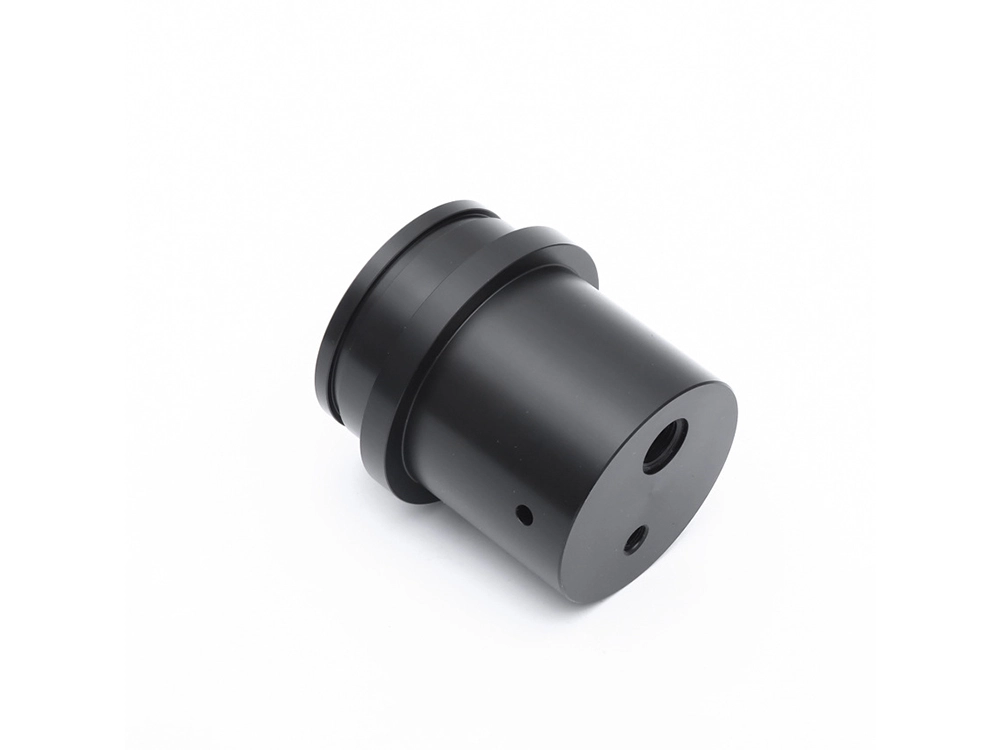
At Chiheng, we specialize in manufacturing custom medical stainless steel machined parts designed for critical applications such as external medical devices, fluid control interfaces, and auxiliary surgical tools.
Using advanced CNC milling and turning equipments, our engineering team delivers tight-tolerance components with superior nickel-plated corrosion resistance and a flawless surface finish.
Whether you need one-off prototypes or low-volume production, we ensure your parts meet the highest standards of biocompatibility, precision, and cleanliness required in the medical industry.
Stainless steel is one of the most trusted materials in medical device manufacturing due to its strength, corrosion resistance, and biocompatibility.
Grades such as 316L and 304 stainless steel are commonly used for components that require durability and easy sterilization.
When combined with precision CNC milling and nickel plating, the result is a component that resists wear, maintains dimensional accuracy, and performs reliably under demanding clinical environments.
304 stainless steel offers excellent strength, formability, and cost efficiency, making it suitable for general industrial and non-critical medical applications. However, it contains a higher level of carbon, which can slightly reduce its corrosion resistance in harsh or chloride-rich environments.
316L stainless steel, on the other hand, contains molybdenum and has an ultra-low carbon content, providing superior protection against pitting and crevice corrosion. It is the preferred material for surgical tools, fluid-handling fittings, and external medical device components that require long-term resistance to sterilization, body fluids, and disinfectants.
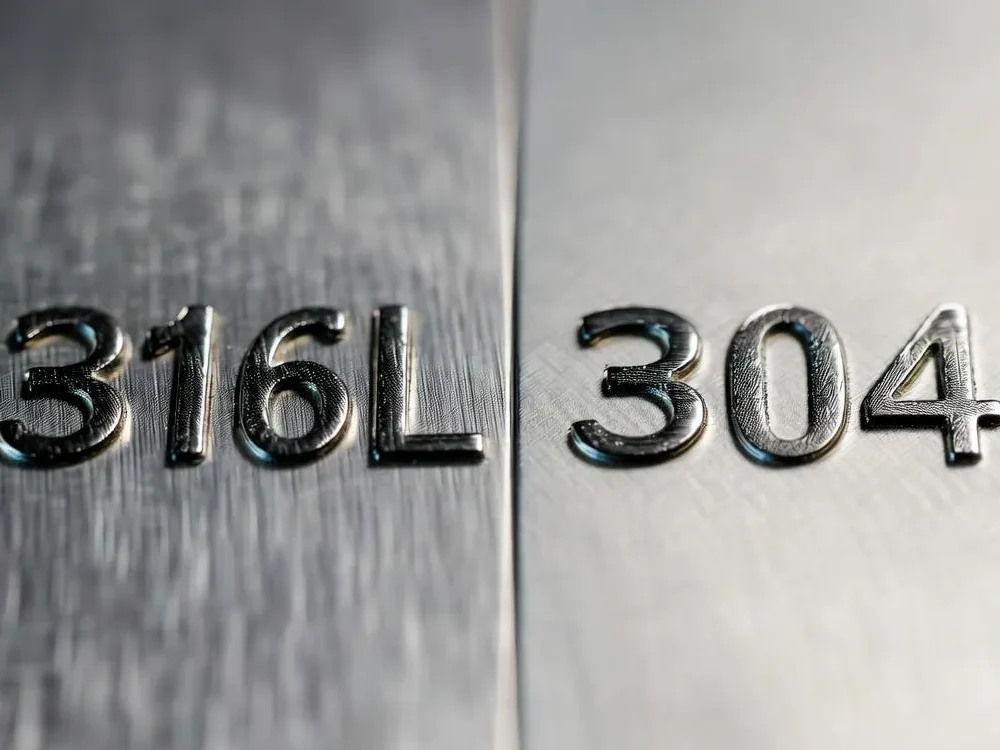
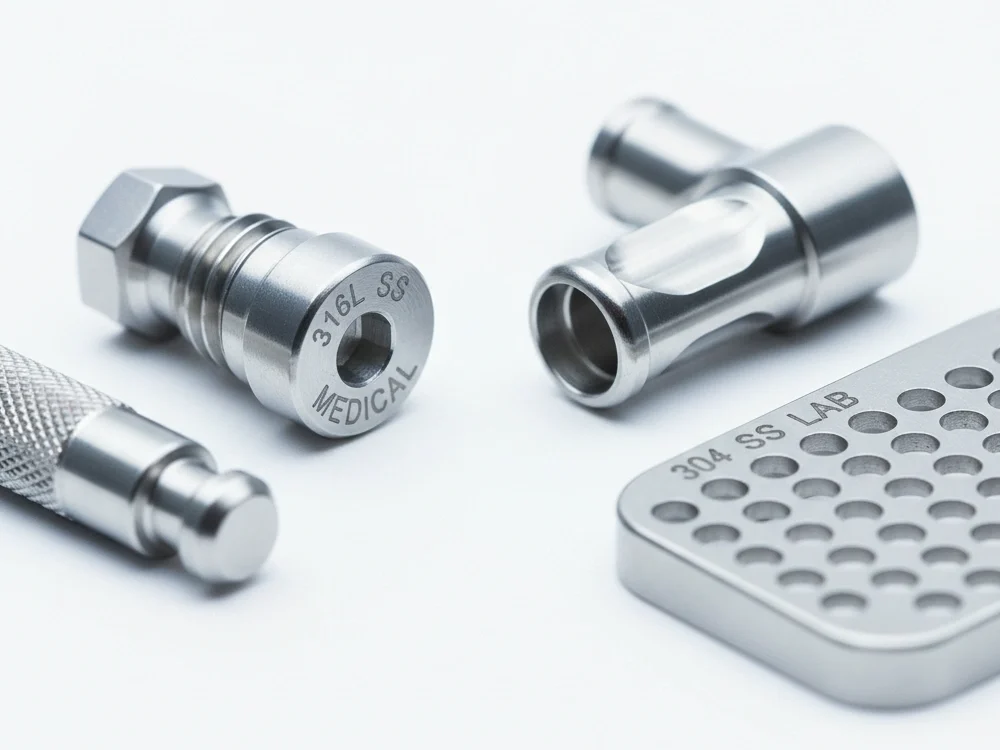
Each project begins with your technical drawings or CAD files, ensuring a perfect fit for your device or assembly.
We offer complete CNC machining services tailored to medical and laboratory applications.
Our capabilities include:
5-axis CNC milling and turning for complex geometries
Surface finishing such as nickel plating, polishing, and passivation
Precision tolerances down to ±0.005 mm
Rapid prototyping and low-volume manufacturing
Full material traceability and RoHS / ISO 13485 compliance
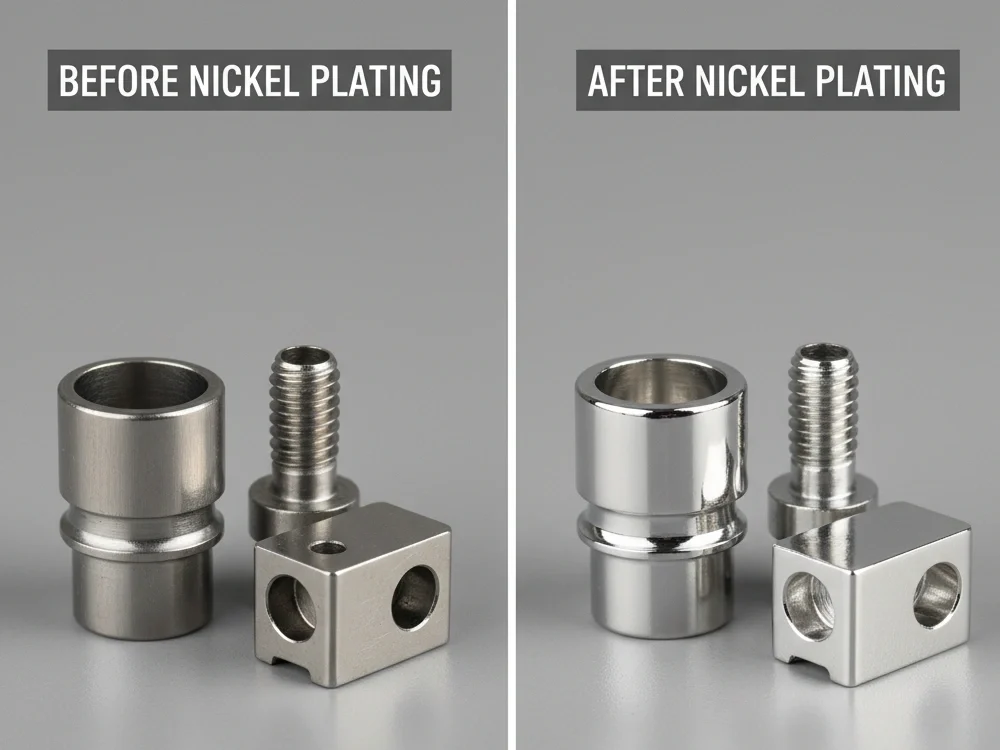
Our nickel plating process enhances corrosion resistance, reduces surface friction, and adds an attractive, professional finish to your CNC machined stainless steel parts.
It is especially suitable for fluid connectors, valve components, and surgical device housings where hygiene and chemical resistance are critical.
Combined with post-polishing and cleaning, nickel-plated finishes help ensure long-term reliability and visual consistency in medical environments.
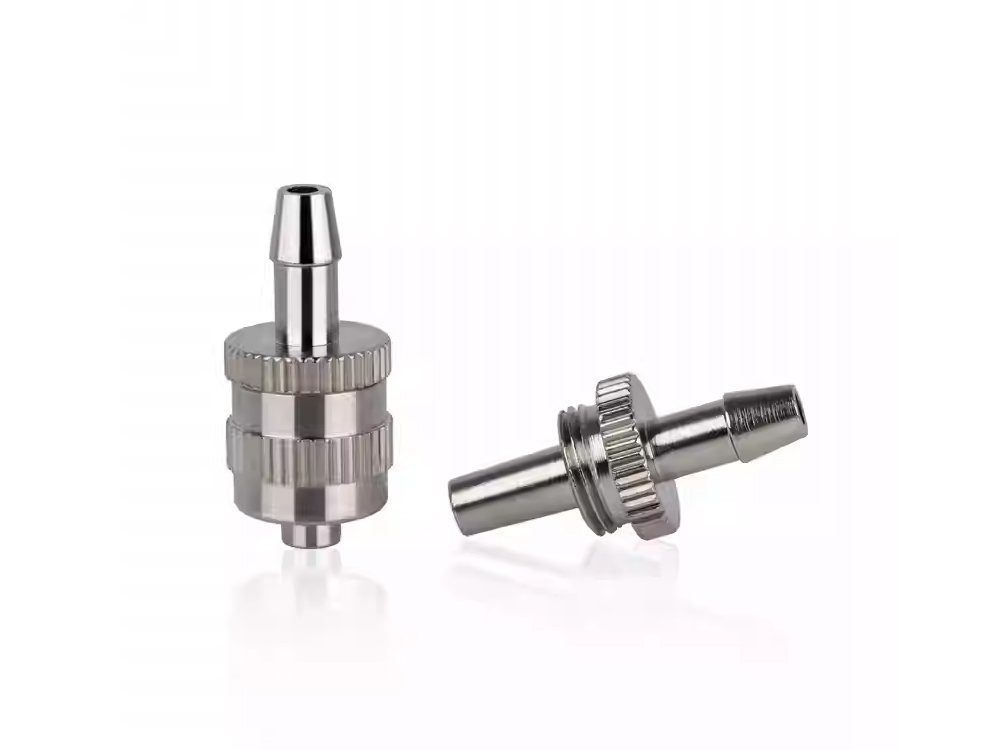
Many medical projects require non-standard geometries or custom mechanical interfaces that can’t be fulfilled with off-the-shelf components.
Our custom CNC milling service bridges that gap by producing bespoke stainless steel medical parts based on your drawings or physical samples.
We handle complex assemblies, hybrid metal designs, and prototype iterations quickly—ideal for R&D, lab testing, or specialized production runs.
Every medical CNC part we produce undergoes strict quality inspection, including dimensional verification, surface roughness measurement, and plating adhesion tests.
We maintain material certification records, process documentation, and full traceability for every batch.
Our in-house QA team ensures compliance with ISO 9001 and medical-grade manufacturing protocols, guaranteeing you components you can trust.
CNC machining can produce a wide range of medical components with tight tolerances and consistent surface quality. Typical examples include surgical tools, diagnostic housings, implant fixtures, dental parts, and fluid-handling connectors for medical devices.
Because CNC technology supports custom geometries and biocompatible materials like 316L stainless steel, titanium, and PEEK, it is ideal for both prototype development and low-volume production of precision medical parts.
“Surgical-grade stainless steel” refers to high-purity alloys such as 316L or 420 stainless steel that offer superior corrosion resistance, biocompatibility, and mechanical strength. These materials are used in surgical tools and implants that require frequent sterilization and contact with biological tissue.
In CNC machining, surgical-grade stainless steel provides excellent machinability while maintaining tight dimensional tolerances and a contamination-free finish suitable for sterile environments.
Yes, MIM-4605 (Metal Injection Molding stainless steel) is sometimes used for complex small medical parts that require intricate geometries not easily achieved through conventional CNC milling.
However, for critical components requiring high mechanical integrity, CNC-machined 316L stainless steel is preferred due to its superior strength, tighter tolerances, and lower porosity compared to MIM-produced parts.
Stainless steel surgical instruments are typically produced through a combination of CNC machining, forging, heat treatment, and surface finishing.
CNC milling or turning creates precise geometries, while grinding and polishing deliver a smooth, mirror-like finish. Nickel plating or passivation further enhances corrosion resistance. Each instrument undergoes strict quality control and sterilization testing to meet ISO 13485 and FDA manufacturing standards.
Under normal operating and sterilization conditions, medical-grade stainless steel does not rust. Alloys such as 316L contain chromium, which forms a passive oxide layer that protects the surface from oxidation and corrosion.
To maintain this property, components often undergo passivation or nickel plating, especially in environments with moisture, saline exposure, or repeated autoclaving. Proper finishing ensures long-term corrosion resistance and biological safety in all medical applications.
You can send us any questions to get any information you would like to know, and we will respond to you in extremely short time.